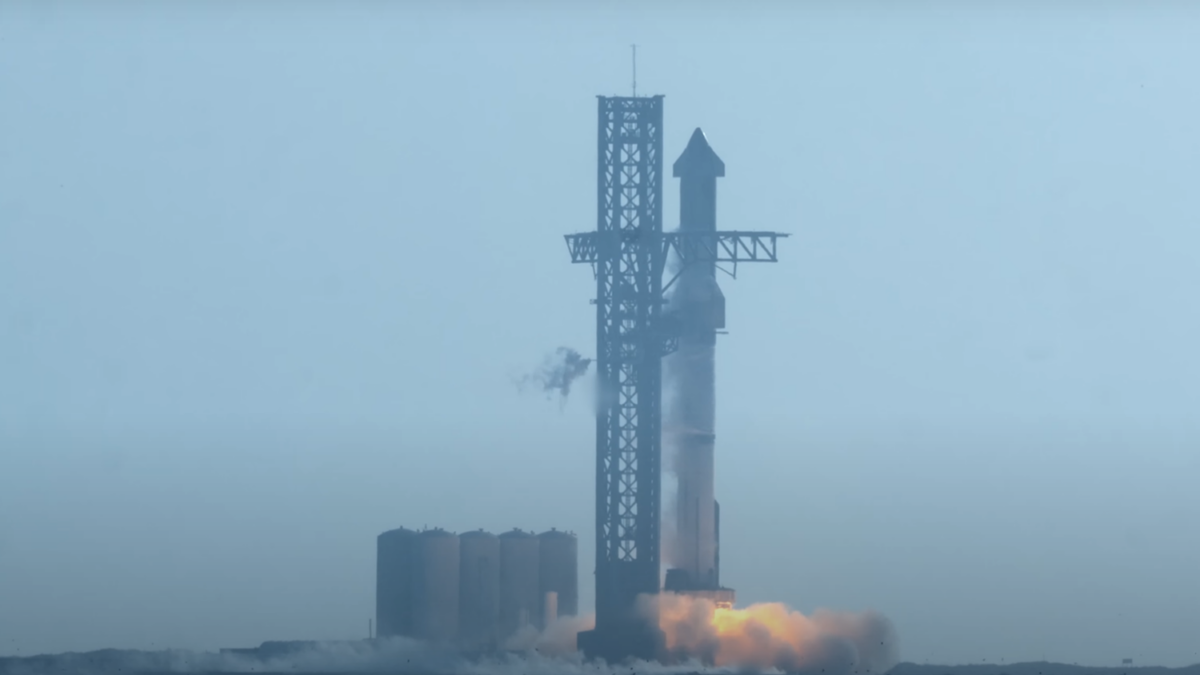
When an out-of-control Chinese booster rocket crashed into the Indian Ocean earlier this month, space experts were confused how an advanced space agency that just landed a rover on Mars could be so “negligent” as to refuse to install basic propulsion systems to guide the rocket’s safe return to Earth.
The current best guess? As long as the rocket wasn’t coming back to hit China, Chinese officials viewed the risk of hitting a population center low enough that it would be better off paying “compensation” for any damages rather than use any more limited space-borne fuel. After all, the fuel burned in a controlled landing would necessitate an earlier refueling of the rocket’s payload, the first stage of China’s first long-term space station — China’s gateway to the moon and beyond.
So why is China rushing? The grand ambition of China’s spacefaring operational timetable demands it can’t spare even a single launch for an extra refueling operation. China plans to complete its massive new space station by the end of next year and has partnered with Russia to build mankind’s first lunar base. Additionally, China has committed to returning samples from Mars by 2030, putting it in direct competition with a joint European-American mission to be the first to make a successful return voyage from Mars.
Make no mistake: China has declared a space race, aiming to surpass the West by the end of the decade.
The first settlements in space will set the tone and basis for man’s long exodus from the confines of Earth. The United States needs to return its focus to space to ensure the future of mankind is free, open, and conducive to American interests.
China has proven its commitment to exporting its techno-dystopian population control systems to fellow totalitarian regimes across the world, and space will be no different. Indeed, China’s coordination of visual, audio, spatial, and biometric monitoring via artificial intelligence to implement inescapable systems of complete oppression reduces humans to mere productivity assets and suffocates the human spirit.
While a social credit system on Earth may limit one to a city bustling with people and resources, imagine being forced to spend the rest of one’s life in a space station the size of a few school buses where every movement and sound is constantly tracked, analyzed, and reported.
Imagine the potential of the vastness of space, where an infinite number and variety of human societies and cultures are free to develop, extinguished or delayed by millennia by one civilization’s early, insufficiently opposed control of space’s resources and population. China has already announced its space station will use its own docking systems incompatible with the international standard, meaning spacefarers must lock in their allegiance to either the Chinese or international bloc for access to fuel and supplies.
As our strategic competitors look towards the stars and to expand the frontier of human destiny, the United States has been mired in a quagmire of political word games, aesthetic grievances, and misplaced priorities.
In America, COVID-19 unemployment subsidies fraud alone has cost nearly ten times NASA’s annual budget, and state education departments across the nation are discouraging students’ development of advanced math skills due to the “inequity” of accelerated math programs. Whereas the majority of Chinese children dream of becoming astronauts, the plurality of our children “aspire” to be online influencers.
So, rather than looking to the heavens and dreaming of seizing the nearly unlimited opportunities beyond our planet, we Americans have chosen to gaze inward. But as dire as the state of America may seem, a renewed commitment to space could very well have the power to heal our country by restoring the frontier spirit that for so long necessitated the pragmatism, trust, and self-reliance that delivered our nation to greatness.
Finally authorizing a NASA contract to deliver the next generation of American astronauts to the moon is a start, but we must demand more. Just as our investments in the Cold War’s Space Race furbished the technologies that have come to dominate our modern society — like satellite communications and computer miniaturization — a new generation of concentrated investment and national focus is required to usher us into the next era — of mass spaceflight and broadening, nearly limitless human horizons.
NASA’s budget amounts to less than half of 1 percent of all federal spending. The resources available for launching the next stage of human development should be commensurate with the gravity and scale of this monumental undertaking.
This doesn’t mean simply spending more tax dollars. Thanks to growth in private spending, the U.S. research-and-development to gross-domestic-product ratio is trending upwards, having surpassed its 1964 space-race peak in 2017. Unfortunately, the United States lags significantly in translational research that links largely federally funded fundamental research to market applications, leaving billions or even trillions of dollars of potential value to languish in labs or be adopted by foreign competitors.
The foundation for lithium-ion battery technology, for example, while developed in America, reached mass production in East Asia due to the fact their governments were willing to spend multiple times ours on translational research despite substantially smaller overall research budgets. By reallocating funds from existing subsidies to legacy industries, like the $5 billion in payments to the coal industry or $2 billion annually to the corn industry, we can afford to invest in the translational research that will deliver our technological advantage to space.
More importantly, however, a successful space program requires a culture of merit and striving, not of identity politics and bureaucracy. It means ensuring our best and brightest, regardless of background, can be identified and given the education they need to carry our civilization to the stars by throwing out the intellectual detritus of critical race theory and assaults on accelerated math programs.
It means fundamentally reorganizing classrooms to be incubators of talent and promoters of shared American civic virtues, not one-size-fails-all academic standards and intersectional oppression that assigns guilt by birthright. It means allowing charter schools to flourish where traditional public schools have failed, transitioning to voucher programs that can ensure every student has the opportunity to be at a school that enables them to succeed, and federally defunding colleges that use racial quotas, not merit in their admissions.
Most of all, that means teaching and learning to again look upon our fellow Americans not as oppressors or freeloaders, but as fellow travelers embarked on a great national project worthy of our united ambitions and passions.
During World War II, the drive to defeat Imperial Japan and Nazi Germany gave Americans common purpose and dignity, uniting a nation long battered by economic depression and growing social, political, and economic tensions. The Cold War kept some of that spirit alive and witnessed a great resurgence in the years before the Soviet Union’s sudden demise, but in the intervening three decades, the United States has been starved of a national project great enough to sustain and require its unity and strength.
A new space race, a project to secure the future of humanity against a tyrannical, totalitarian foe is the golden opportunity for renewal America has been waiting for, a real reason for unity, a project worthy of our pride and capable of truly inspiring our nation to greatness and healing.









